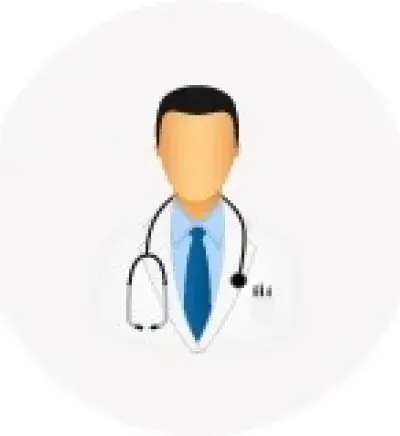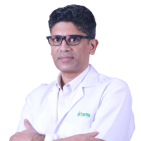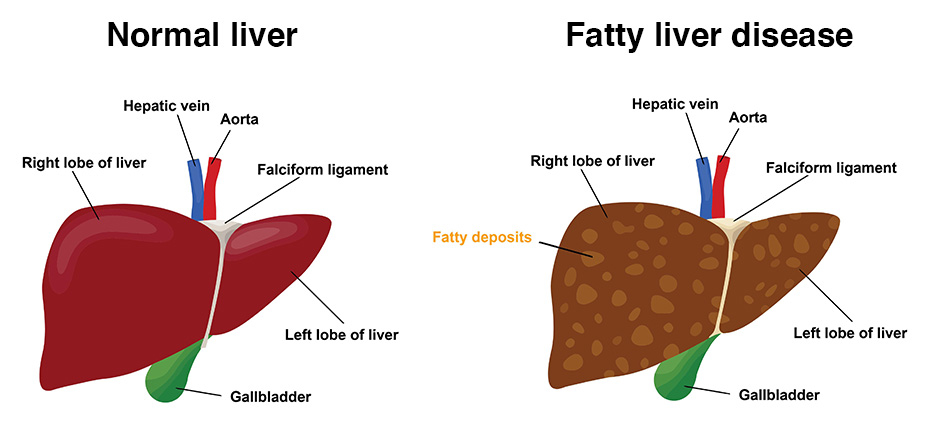Fatty Liver Disease Treatment: Reversing the Effects of Liver Fat Accumulation
Fatty liver disease is a condition where excess fat builds up in the liver cells, which can lead to inflammation, liver damage, and even cirrhosis if left untreated. There are two main types: Alcoholic Fatty Liver Disease (AFLD) and Non-Alcoholic Fatty Liver Disease (NAFLD). While alcohol consumption is the primary cause of AFLD, NAFLD is commonly linked to obesity, poor diet, and sedentary lifestyle. Early diagnosis and treatment are crucial to prevent the condition from progressing to more severe liver diseases.
Symptoms of Fatty Liver Disease
Fatty liver disease often has no symptoms in its early stages. However, as the condition progresses, individuals may experience:
- Fatigue and weakness
- Abdominal pain, especially in the upper right side
- Unexplained weight loss
- Jaundice (yellowing of the skin and eyes)
- Swelling in the abdomen or legs
- Confusion or mental fog (in advanced stages)
If any of these symptoms are present, it’s essential to consult a doctor for proper diagnosis and treatment.
Causes of Fatty Liver Disease
Fatty liver disease can be caused by several factors, including:
- Obesity: Excess body weight, especially abdominal fat, increases the risk of fat accumulation in the liver.
- Unhealthy Diet: Diets high in fat, sugar, and refined carbohydrates can contribute to fatty liver disease.
- Sedentary Lifestyle: Lack of physical activity can lead to weight gain and fatty liver.
- Diabetes: People with type 2 diabetes are more likely to develop fatty liver disease.
- High Cholesterol: Elevated cholesterol levels can lead to fat build-up in the liver.
- Medications: Some drugs, such as corticosteroids and certain chemotherapy drugs, can cause fatty liver as a side effect.
- Genetics: Family history and genetic factors can also play a role in the development of fatty liver disease.
Diagnosis of Fatty Liver Disease
Diagnosing fatty liver disease typically involves the following steps:
- Medical History and Physical Examination: A doctor will ask about symptoms, medical history, lifestyle, and perform a physical examination to check for signs of liver dysfunction.
- Blood Tests: These tests help evaluate liver function by measuring liver enzyme levels, cholesterol, and blood sugar levels.
- Imaging Studies: Ultrasound, CT scan, or MRI may be used to assess the extent of fat accumulation in the liver.
- Liver Biopsy: In some cases, a biopsy may be performed to assess liver damage or inflammation. This is typically done if there are concerns about the severity of liver damage.
Treatment Options for Fatty Liver Disease
While there is no specific medication to cure fatty liver disease, it can be managed and even reversed with proper lifestyle changes and medical treatment. Treatment options include:
- Lifestyle Changes
- Dietary Modifications: A healthy, balanced diet rich in fruits, vegetables, whole grains, and lean proteins is essential. Reducing intake of fats, sugars, and processed foods can significantly improve liver health.
- Weight Loss: Gradual weight loss (5-10% of total body weight) is one of the most effective ways to reverse fatty liver disease.
- Physical Activity: Regular exercise (at least 30 minutes per day) helps in weight management and improving liver function.
- Avoiding Alcohol: If you have fatty liver disease, it’s crucial to avoid alcohol to prevent further liver damage.
- Medications
While no specific medication is approved solely for fatty liver disease, doctors may prescribe treatments to address related conditions, including:- Insulin Sensitizers: Medications like metformin or pioglitazone may be prescribed for patients with diabetes or insulin resistance.
- Cholesterol-Lowering Drugs: Statins or other medications may be used to control high cholesterol and triglyceride levels.
- Vitamin E and Antioxidants: In some cases, vitamin E supplements or other antioxidants may help reduce liver inflammation.
- Managing Underlying Conditions
- Diabetes Management: Keeping blood sugar levels in control through medications, diet, and exercise is essential for managing fatty liver disease.
- Cholesterol Management: Lowering high cholesterol levels can help reduce fat accumulation in the liver.
- Blood Pressure Control: Hypertension (high blood pressure) should be well-managed to avoid complications with fatty liver disease.
- Liver Transplant (in Advanced Cases)
If fatty liver disease progresses to cirrhosis or liver failure, a liver transplant may be necessary. However, this is a last resort for patients with end-stage liver disease.
Role of Healtour Solutions in Fatty Liver Disease Treatment
Healtour Solutions helps you connect with the best liver disease specialists in India for the most effective fatty liver treatment. We partner with top hospitals that offer advanced diagnostic and treatment options, including:
- Comprehensive liver health evaluation
- Personalized treatment plans tailored to individual needs
- Expert hepatologists and dietitians who guide you through the treatment process
- Access to world-class facilities with cutting-edge technologies for liver care
Why Choose Healtour Solutions for Fatty Liver Disease Treatment in India?
- Expert Care: We connect you with top hepatologists and specialists for personalized fatty liver disease management.
- Comprehensive Treatment: From diet changes to medical management, we offer a holistic approach to treating fatty liver disease.
- Affordable Treatment: The cost of fatty liver disease treatment in India is significantly lower compared to Western countries, offering a cost-effective solution for international patients.
- World-Class Hospitals: We partner with highly rated hospitals in India, equipped with the latest technology and experienced medical professionals.
- Post-Treatment Support: Healtour Solutions provides ongoing support and follow-up care to ensure successful outcomes and long-term liver health.
Lifestyle Changes to Manage Fatty Liver Disease
- Healthy Diet:
A healthy diet is crucial in managing and reversing fatty liver disease. Include plenty of fresh fruits, vegetables, and whole grains, and avoid processed foods, sugary drinks, and excessive fat intake.
- Exercise Regularly:
Aim for at least 150 minutes of moderate-intensity exercise per week. Activities like walking, swimming, cycling, or strength training can help you lose weight and improve liver function.
- Avoid Alcohol:
Alcohol consumption can worsen liver damage, so it’s essential to eliminate alcohol completely from your routine if diagnosed with fatty liver disease.
- Weight Management:
Gradual weight loss through a combination of diet and exercise is one of the most effective ways to reduce fat in the liver and improve overall liver health.
Contact Us for Fatty Liver Disease Treatment
If you or a loved one is suffering from fatty liver disease, Healtour Solutions can help. We offer personalized treatment options, expert care, and world-class facilities to help manage and reverse fatty liver disease. Contact us today for a consultation and take the first step towards better liver health.
FAQs About Fatty Liver Disease
- What causes fatty liver disease?
Fatty liver disease is primarily caused by obesity, poor diet, excessive alcohol consumption, and underlying health conditions like diabetes and high cholesterol.
- Can fatty liver disease be reversed?
Yes, in many cases, fatty liver disease can be reversed with lifestyle changes such as weight loss, exercise, and dietary modifications.
- What are the symptoms of fatty liver disease?
Symptoms may include fatigue, abdominal pain, jaundice, swelling, and unexplained weight loss.
- Is fatty liver disease dangerous?
If left untreated, fatty liver disease can progress to more severe conditions like cirrhosis or liver failure.
- Can fatty liver disease be treated without medication?
Yes, lifestyle changes such as diet and exercise are the primary treatments for fatty liver disease.
- How is fatty liver disease diagnosed?
Diagnosis involves blood tests, imaging studies (ultrasound, CT scan, MRI), and in some cases, a liver biopsy.
- What medications are used to treat fatty liver disease?
There are no specific medications for fatty liver disease, but treatment may include medications for related conditions like diabetes and high cholesterol.
- How long does it take to recover from fatty liver disease?
With lifestyle changes, many patients see improvement within a few months, but long-term management is necessary for maintaining liver health.
- Can fatty liver disease be prevented?
Yes, by maintaining a healthy diet, exercising regularly, and managing conditions like diabetes and high cholesterol, fatty liver disease can be prevented.
- Is liver transplant necessary for fatty liver disease?
A liver transplant is typically only required in advanced cases of fatty liver disease, such as cirrhosis or liver failure.




